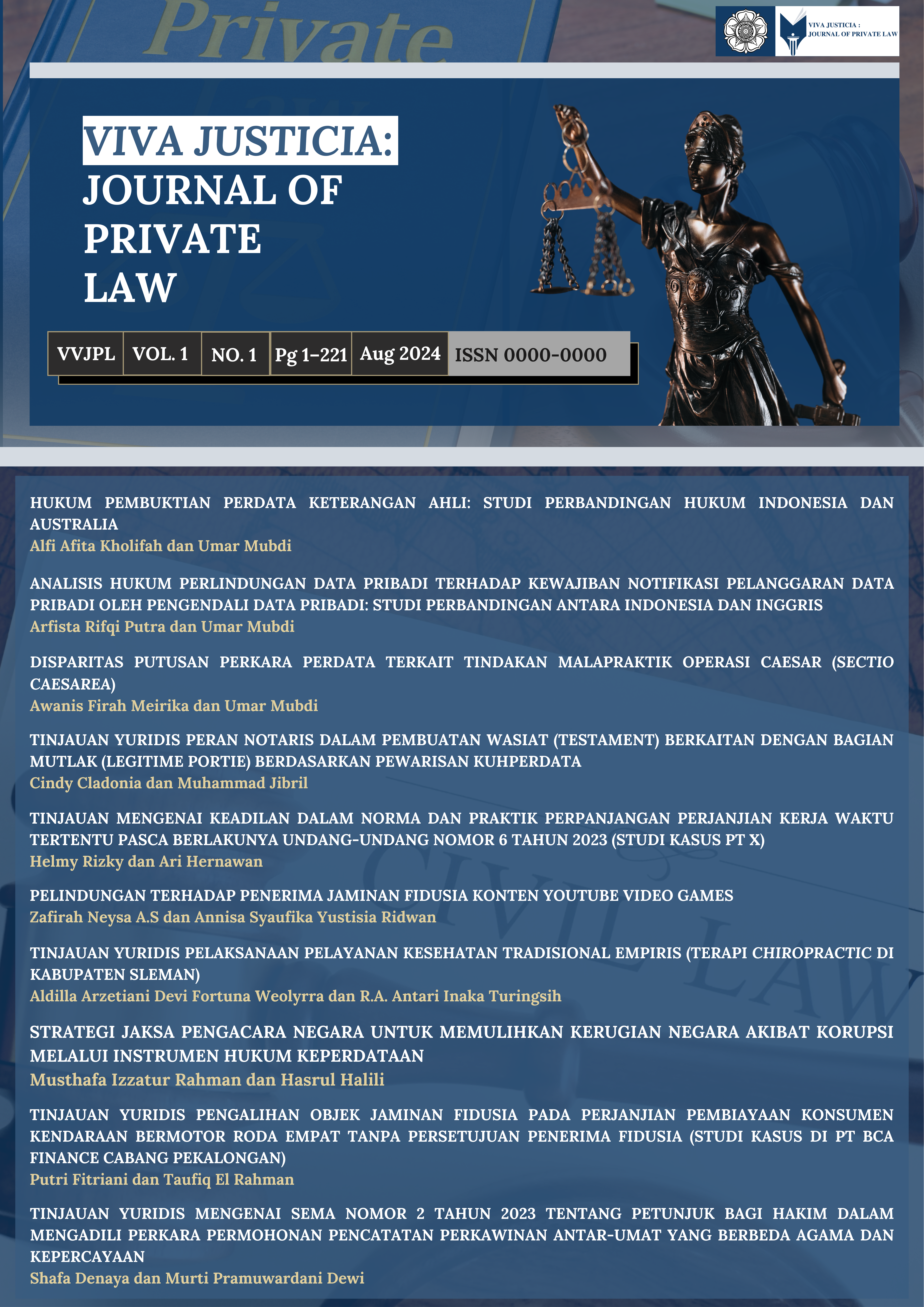TINJAUAN YURIDIS PERAN NOTARIS DALAM PEMBUATAN WASIAT (TESTAMENT) BERKAITAN DENGAN BAGIAN MUTLAK (LEGITIME PORTIE) BERDASARKAN PEWARISAN KUHPERDATA
Main Article Content
Abstract
Making a testament must not violate the legality of the portie in accordance with Article 913 of the Civil Code. However, in practice, general testament deeds are still found to violate the legality of the portie. This research aims to analyze the role of the Notary in making testaments related to the legitime of the portie, as well as the Notary's responsibilities regarding the general testament deeds which were annulled by the court due to violating the legitimacy of the portie. Through normative legal research methods supported by data from sources, the following results were obtained: First, the role of the Notary in making testaments relating to the legitimacy of the portie is only found in general testaments, namely through legal counseling and re-reading the deed before signing, because the testator conveys his will before a Notary. This is different from a legal testament and a secret testament, where the Notary's only role is to store and report the testament to the Central Register of Wills. Second, in a general testament that is canceled by the court due to violating the Legitime portie, the Notary cannot be held responsible because the legitimacy of the portie was part of the contents of the testament, which was a statement of the testator's unilateral will. The legitime portie can only be calculated and determined when the inheritance is open or the heir dies, and the fulfillment of the legitime portie can only be done based on a claim from the legitimary. In general testaments and in deeds made before a Notary (partij acte), the Notary can only be held responsible for the procedures for making the deed.
Article Details

This work is licensed under a Creative Commons Attribution-ShareAlike 4.0 International License.

